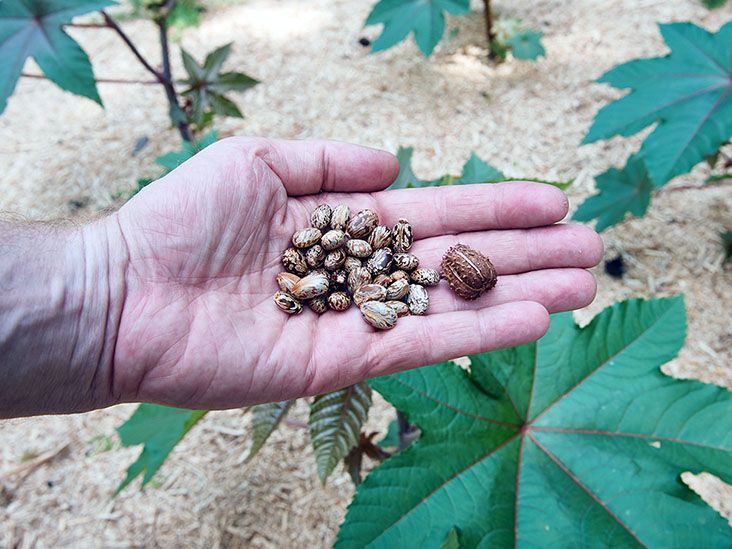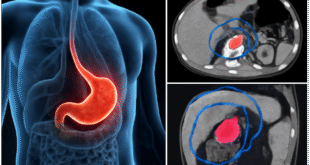Một nghiên cứu tại New Zealand đã chỉ ra rằng dầu castor có thể là một phương pháp chữa trị tự nhiên hiệu quả cho bệnh khô mắt. Nghiên cứu này đã áp dụng dầu castor lên mí mắt trong 4 tuần và thấy rằng tình trạng bệnh của các người tham gia đã cải thiện đáng kể. Bệnh khô mắt là một tình trạng thường gặp và có thể gây viêm nhiễm mắt.

Castor oil has been found to be a potential natural remedy for dry eye disease, according to a recent trial conducted by researchers in New Zealand. Dry eye disease, also known as keratoconjunctivitis sicca, affects millions of individuals and can have a negative impact on vision and quality of life. The trial involved the application of castor oil to the eyelids over a four-week period. At the end of the trial, participants experienced an overall improvement in symptoms, including a reduction in eyelid thickness.
Dry eye disease is a common condition that can lead to inflammation in the eyes. The American Academy of Ophthalmology (AAO) estimates that approximately 20 million people in the United States are affected by this condition. While there are existing treatments available, researchers from the University of Auckland were interested in exploring the potential effectiveness of a natural remedy. In their pilot study, participants applied castor oil to their eyelids and found it to be beneficial. The researchers are now conducting a further study to investigate whether the benefits can be enhanced by combining castor oil with mānuka and kanuka oils. More information about the current trial can be obtained from the University of Auckland.
Dry eye disease can occur due to various factors, including disease, environmental factors, and allergies, according to the National Institutes of Health (NIH). One common cause is blepharitis, a disease that leads to eyelid inflammation, thickening, and flaking, resulting in dry eyes. Symptoms of dry eye disease may include burning or stinging in the eyes, watery or teary eyes, sensitivity to light, and a feeling of grittiness in the eyes. The condition is more prevalent in individuals aged 50 and older, particularly women going through menopause, as hormonal changes can affect the tear film of the eyes.
Treatment options for dry eye disease include over-the-counter remedies such as artificial tears and nighttime lubricants. Some individuals may benefit from taking vitamin A, which can improve the quality of tears. Omega-3 supplements may also play a role, especially for those with low dietary intake, but the results from trials have been inconsistent, according to a systematic review. In some cases, doctors may prescribe eye drops with anti-inflammatory properties, such as cyclosporine (Restasis) or lifitegrast (Xiidra).
Castor oil, derived from the Ricinus communis plant, is a vegetable oil commonly used as a laxative and a natural treatment for certain skin conditions like acne. The NIH states that castor oil can enhance skin smoothness and softness, as well as promote healthy pores and skin tissue through moisturization, hydration, and cleansing. With these benefits in mind, the researchers wanted to investigate whether castor oil could also be beneficial for treating dry eye disease.
For their trial, the researchers recruited 26 individuals with dry eye disease caused by blepharitis. To be eligible for the study, participants had to meet certain criteria, such as not having had ocular surgery within the past three months, not wearing contact lenses during the study, and agreeing to discontinue the use of any lid hygiene products. At the beginning of the trial, participants completed questionnaires and underwent eye exams. They were then instructed to apply castor oil to their top and bottom eyelids twice a day for four weeks. After the trial period, the participants’ symptoms were reassessed to determine if there had been any improvements.
The trial results showed promise for using castor oil as a treatment for dry eye disease. Participants experienced an overall improvement in their symptoms, including a reduction in crusting around the eyelashes and improvement in eyelid thickness, which is a characteristic of blepharitis. Additionally, participants had less redness on their eyelids after four weeks of castor oil treatment. Professor Jennifer Craig, one of the study investigators, stated that castor oil could potentially offer a safe, effective, and easy-to-use alternative to existing therapies. She hopes that the study will provide evidence-based guidance for clinicians considering castor oil as a management option for patients with blepharitis.
Dr. Cory Bovenzi, a facial plastic surgeon at Smith Cosmetic Surgery in Denver, Colorado, commented on the trial, stating that castor oil has properties that make it a potentially good candidate for treating dry eye disease. He explained that it acts as a moisturizing agent with a long-lasting effect, which may be more beneficial than current eye drops on the market. Castor oil also has antimicrobial and anti-inflammatory effects that can help reduce inflammation and blockage of the meibomian glands, which are responsible for lubricating the eyes. Dr. Bovenzi believes that castor oil has the potential to be a more cost-effective alternative to other treatments for dry eye disease.
However, it is important for individuals with dry eye symptoms to consult with their doctors, as it can sometimes be a symptom of an autoimmune disease like Sjogren’s syndrome. Without proper treatment, Sjogren’s syndrome can lead to vision problems and peripheral neuropathy. Therefore, it is best to seek advice from a healthcare professional before trying natural remedies to avoid causing long-term damage.
Dr. Margaret Wang French, an assistant professor in the Department of Ophthalmology at UT Southwestern Medical Center, also commented on the trial. She noted that the initial study showed improvement in blepharitis, but cautioned that the small pilot study lacked controls and randomization. Dr. Wang French emphasized the importance of working with a healthcare professional to develop a tailored treatment plan based on individual symptoms and findings. Consistency and patience with therapy were the two characteristics that she found most helpful for her patients.
In conclusion, the recent trial conducted in New Zealand suggests that castor oil may be a beneficial natural remedy for dry eye disease. Participants in the study experienced improvements in their symptoms, including a reduction in eyelid thickness and crusting. Castor oil’s moisturizing, antimicrobial, and anti-inflammatory properties make it a potential alternative to existing treatments. However, it is important to consult with a healthcare professional before trying natural remedies, especially if dry eye symptoms could be indicative of an underlying condition. Further research, including randomized controlled trials, is needed to fully evaluate the effectiveness and safety of castor oil as a treatment for dry eye disease.
Hỏi đáp về nội dung bài này
1. Castor oil có thể là một phương pháp tự nhiên hiệu quả để điều trị bệnh khô mắt không?
– Có, một nghiên cứu thử nghiệm mới cho thấy castor oil có thể là một phương pháp tự nhiên tốt để điều trị bệnh khô mắt không.
2. Nghiên cứu về castor oil và bệnh khô mắt được thực hiện ở đâu?
– Nghiên cứu này được tiến hành tại New Zealand.
3. Những lợi ích mà người tham gia nghiên cứu đã trải qua sau khi sử dụng castor oil là gì?
– Người tham gia nghiên cứu đã trải qua cải thiện tổng thể về triệu chứng bệnh khô mắt, bao gồm cả cải thiện độ dày của mí mắt.
4. Bệnh khô mắt là một bệnh thông thường ảnh hưởng đến bao nhiêu người ở Mỹ?
– Theo Học viện Mắt học Hoa Kỳ (AAO), bệnh khô mắt ảnh hưởng đến khoảng 20 triệu người ở Mỹ.
5. Nghiên cứu tiếp theo sẽ điều tra việc kết hợp castor oil với dầu mānuka và kanuka có thể mang lại lợi ích gì?
– Nghiên cứu tiếp theo sẽ kiểm tra xem việc kết hợp castor oil với dầu mānuka và kanuka có thể tăng cường những lợi ích đó hay không.
Nguồn thông tin được tham khảo từ trang web: medicalnewstoday, Castor oil may improve symptoms as a natural remedy
Nội dung được biên tập, sáng tạo thêm bởi: Ban biên tập Ykhoa. org
 Y khoa Diễn đàn Y khoa, y tế sức khoẻ, kiến thức lâm sàng, chẩn đoán và điều trị, phác đồ, diễn đàn y khoa, hệ sinh thái y khoa online, mới nhất và đáng tin cậy.
Y khoa Diễn đàn Y khoa, y tế sức khoẻ, kiến thức lâm sàng, chẩn đoán và điều trị, phác đồ, diễn đàn y khoa, hệ sinh thái y khoa online, mới nhất và đáng tin cậy.





